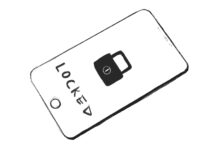Health literacy from a patient’s perspective describes a patient’s ability to read and understand information and directions relating to healthcare. From a healthcare provider’s perspective, health literacy is about communicating information clearly and effectively. Health literacy involves a variety of healthcare topics. Common questions relating to health literacy include:
- Does the patient understand the diagnosis and recognize what it means?
- Does the patient understand prescription guidelines and know how to take their medication?
- Does the patient know how to schedule medical appointments with the right doctor?
- Does the patient know whom to contact with questions and how to reach this person?
- Does the patient acknowledge and understand the steps necessary to maintain good overall health?
Health literacy involves all the skills used to communicate and make sense of health services and health information, followed by making wise and informed healthcare decisions.
What Causes Health Literacy Deficiencies?
People from all backgrounds can struggle to understand information about their healthcare. While education level can affect health literacy, there are many factors to consider. Your cultural background can be major influence on how you view health and wellness. The Center for Health Care Strategies, Inc. offers more information about how culture is linked to health literacy.
In addition to cultural and educational factors, it’s also important to consider specific circumstances and how they affect health literacy. For example, the shock and stress of a new diagnosis can make it harder for people to process information. Many people have limited experience in healthcare, which can leave patients and caregivers frustrated, feeling vulnerable and uncertain of what to do next. These situations and others can contribute to lower health literacy.
Why Should I Care About Health Literacy?
When you have a higher level of health literacy, you are more likely to enjoy better overall health outcomes. You may be able to save money and avoid unnecessary hospital visits from complications. If you have a solid grasp on healthcare knowledge, you can share what’s going on and offer a better explanation to your doctor. You and your medical team can work together to develop a plan of action. People who are comfortable talking and learning about healthcare topics are more confident in their ability to take better care of themselves on a daily basis.
Who is Responsible for Health Literacy?
Healthcare providers take most of the responsibility of healthcare literacy as they help their patients understand health conditions, medication prescriptions and overall wellness. However, everyone can be proactive in understanding healthcare and taking steps to improve health literacy. The Centers for Disease Control (CDC) reminds us that we all need information about our health, so we all also need health literacy skills.
Health Literacy for Patients
Be Persistent
There are many ways for you to take an active role in improving your health literacy. Many times, you have to be persistent in order to get results. Ask questions, spend time learning about your health condition and make sure you understand what’s going on with your body. You may have to ask doctors to repeat themselves. Keep pressing for information until you are comfortable with your level of understanding. Don’t be ashamed to ask the doctor to use simple, everyday language. If you still have questions about your healthcare, be persistent and keep searching for answers.
Use Different Forms of Communication
Sometimes it’s helpful to get the same information through multiple channels. Many healthcare providers offer various forms of communication, including written materials, pictures, online patient portals and phone support. Multiple forms of communication can be especially helpful for appointment and medication refill reminders. Take advantage of all these resources.
Write Down Questions
Write down your questions before your arrive at medical appointments. This makes it easier for you to remember everything when you see your doctor or talk to your pharmacist. It may be helpful for you to keep a health journal, especially if you’re living with a chronic health condition. Health journals are a great place to write down your questions, medical appointments and health goals. You can also track how you feel on a daily basis. This is all important information for you to review with your doctor or pharmacist.
Record Specific Instructions
If you are an audio learner, ask your doctor if you can record your conversations, especially if they involve specific instructions. This way you can replay your doctor’s exact words from home. It’s very important that you always get permission from your doctors and nurses before recording any conversations to respect their privacy.
Ask for Typed Notes
Ask for all your instructions and other patient information to be delivered in typed notes. Typed notes are often easier to read than normal handwriting. It may be helpful to keep your typed notes with your health journal.
Keep Contact Information Easily Accessible
Keep track of all the important contact information for your healthcare providers. It’s helpful to keep all this information in one, easily accessible place. Many people include this information in their health journal. This way, if you have questions about your healthcare you know which people to call and how to reach them.
Health Literacy for Healthcare Providers
Know the Warning Signs
Some people will freely admit that they don’t understand the health information presented to them. Other people, however, will never bring it up. There are often signs to help you identify low health literacy. If there’s a habit of missed appointments or issues with medication adherence, it can indicate that the patient is having a hard time understanding expectations. One simple way you can gauge your patients’ level of understanding is to ask them to explain their condition, describe their medication schedule and offer a brief medical history.
Be Understanding
It can be scary and frustrating when people don’t know what’s going on with their body. Try to be mindful of the situation from a patient perspective and offer your support.
Connect Patients to Credible Resources
You can support patients and help them improve health literacy by connecting them to reliable resources. Remember, health literacy is also about patients knowing how to care for their overall health and wellness. Guide patients to credible resources and help them find accurate health information.
This article addresses the root problem of health literacy and briefly mentions its connection with culture. This is very interesting because it exemplifies how the concept we develop should address and take into account this cultural gap that is explained. Another important topic addressed in this article is health providers ability to identify low health literacy. Some people are unlikely to bring up confusion they may have with care instructions, medications, and diagnoses that their providers give them. This barrier of communication between the patient and health provider may be linked to this inability or uneasiness with openly admitting confusion or misunderstanding. Also the article talks about the multiple benefits of overall improved health literacy. For example, improved health literacy leads to overall better health and less “unnecessary hospital visits from complications”. This helps explain the political, financial, and wellness benefits from improving health literacy both at the individual and societal levels.





I think that a good point in this article is the idea of “Why should I (patients) care about health literacy?” I think that a lot of people take a passive approach and think: my doctor should just tell me what I need to know. I think a hurdle we could potentially face is people not wanting to know all they should know about pharmaceutics because they don’t think it’s important to know.
This was a great article to address as you mentioned, Izzy, about the root cause of health literacy amongst heath care providers and patients. To build upon Amber, a point that I found important was when the article stated the section, “Be Understanding”. It has come to my attention that individuals can become scared or nervous to acknowledge an issue that may be prevalent with their health. By avoiding such issues, one may feel as if it it not existent which in return lead to no help or medication and further complications.